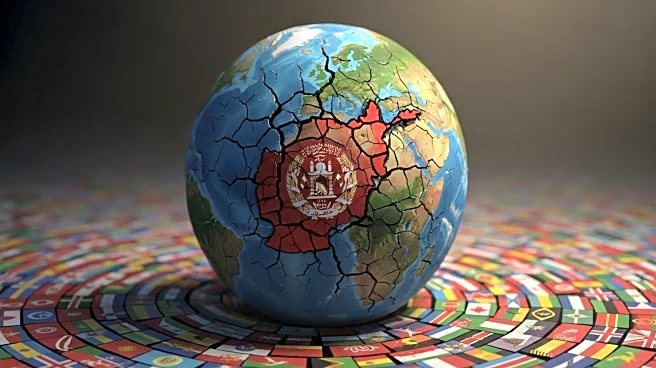What is the story about?
What's Happening?
The Taliban administration has reported a death toll of 2,205 following a recent earthquake in Afghanistan. The disaster has primarily affected the mountainous Kunar province near the border with Pakistan, leaving nearly 4,000 injured. Rescue operations are ongoing but are hindered by rough terrain and damaged roads. The Taliban has called for international aid, but relief efforts have been limited due to the country's isolation since the Taliban's takeover in 2021. Aid agencies are facing challenges in providing assistance to female survivors due to restrictions on women's movement under Taliban rule. The United Nations has warned of a funding gap and the risk of disease due to overcrowded shelters and unsafe conditions.
Why It's Important?
The earthquake has exacerbated Afghanistan's existing humanitarian crisis, which has been ongoing due to decades of conflict and recent political changes. The country's ability to respond to disasters has been weakened by reduced foreign aid since the Taliban's return to power. The situation highlights the urgent need for international support to address the immediate needs of the affected population and to prevent further deterioration of living conditions. The restrictions on women's movement add a layer of complexity to the relief efforts, potentially leaving a vulnerable segment of the population without adequate support.
What's Next?
The international community may face pressure to increase aid to Afghanistan despite political challenges. Humanitarian organizations are likely to continue advocating for more support to address the vast needs of the affected population. The Taliban's appeal for aid could lead to diplomatic discussions on how to provide assistance while navigating the political landscape. The risk of disease outbreaks in overcrowded shelters may prompt health organizations to prioritize medical aid and sanitation efforts.
Beyond the Headlines
The earthquake has highlighted the broader implications of Afghanistan's isolation on its ability to respond to natural disasters. The restrictions on women's movement under Taliban rule raise ethical concerns about gender equality and human rights. Long-term shifts in international relations may be triggered as countries reassess their engagement with Afghanistan in light of humanitarian needs.















